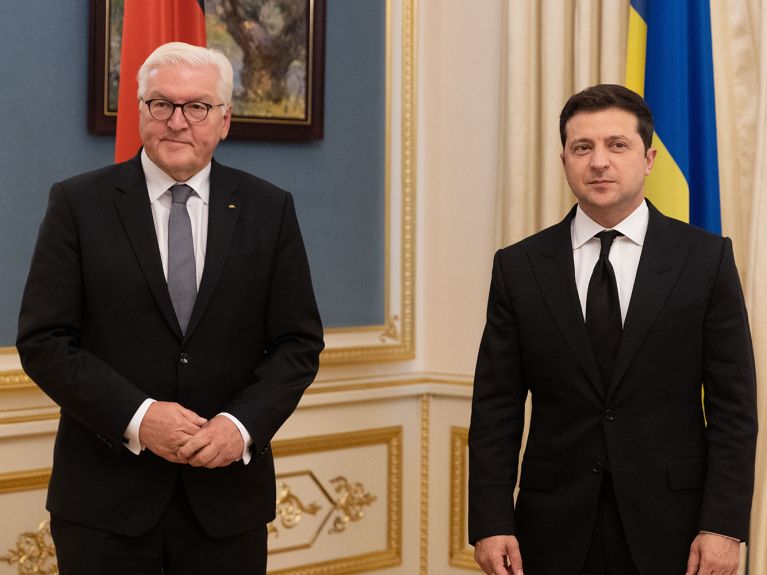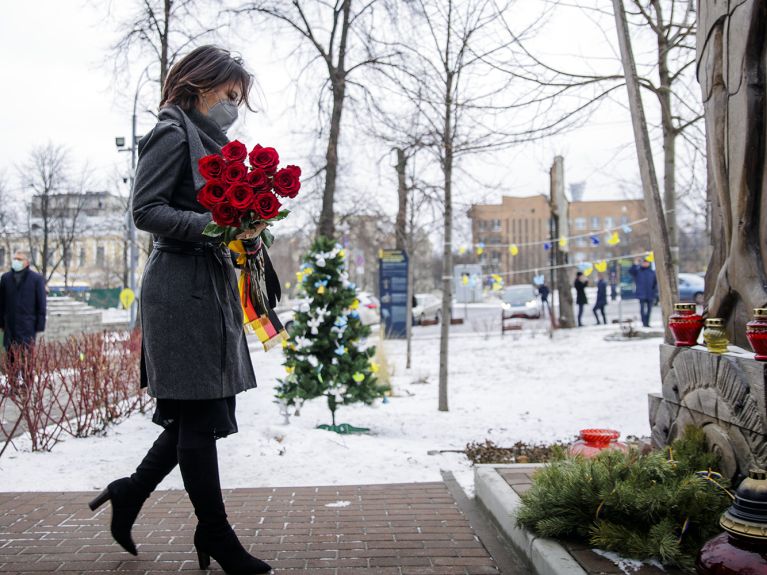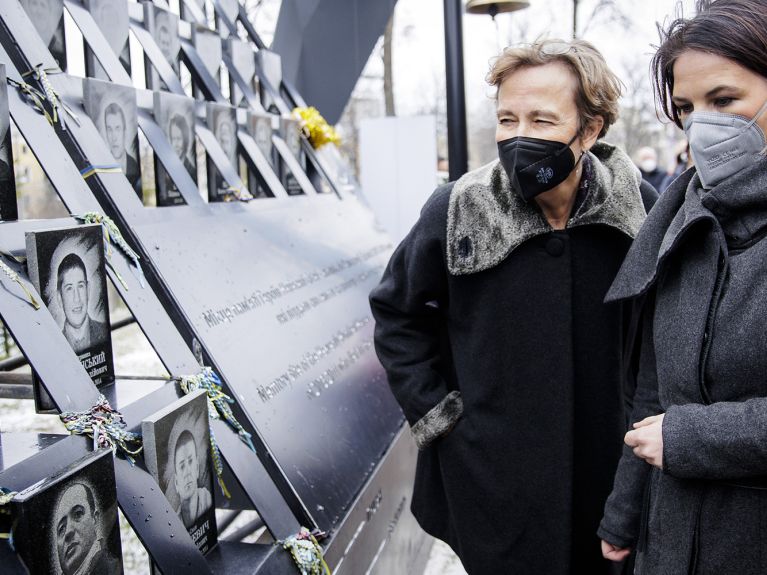Germany – a reliable partner
Germany is supporting Ukraine with a large number of state and non-state activities. Find out here just how multifaceted the cooperation is.

Ever since the Revolution of Dignity in 2014, Ukraine has been following an unprecedented reform course with its sights on Europe. German-Ukrainian cooperation is focused particularly on good governance (democracy, civil society, public administration, decentralisation) and on energy efficiency and sustainable economic development. This has given rise to an intensity of cooperation that Germany has with only few other countries and that is being constantly further expanded through direct dialogue channels and a wide range of visits on all levels.

In total, Germany has provided Ukraine with more than 1.8 billion euros in support since 2014. Ukraine is one focus within the framework of the project “Expanding Cooperation with Civil Society in the Eastern Partnership Countries and Russia”. 27 million euros has been invested in bilateral projects and another 14 million in regional projects. Flagship projects in this context are the establishment of independent public service broadcasting and German-Ukrainian youth exchange programmes.
Germany and Ukraine are linked by a close friendship.
Bilateral development cooperation has seen around 757.5 million euros pledged to projects in Ukraine since 2014. For the most part, these projects are run by the Deutsche Gesellschaft für Internationale Zusammenarbeit (GIZ), the Physikalisch-technische Bundesanstalt (PTB) and the Kreditanstalt für Wiederaufbau (KfW). GIZ alone employs 376 Ukrainian staff in its projects.

Germany also provides direct support to many communities in Ukraine which have taken in internally displaced persons. In this context, the money is spent primarily on building accommodation, expanding social infrastructure, ensuring and improving the water supply and strengthening civil protection.
Germany is one of the biggest bilateral donors of humanitarian aid (around 150 million euros since 2014) to Ukraine, money that is used among other things for mine clearance and the disposal of explosive remnants of war.

Since 2014, the German government has provided a loan guarantee facility of 500 million euros that is used among other things for Ukraine’s deposit protection fund and to modernise the energy supply system.
On behalf of the Federal Ministry for Economic Cooperation and Development (BMZ), the Service Agency Communities in One World supports German-Ukrainian community relations that contribute to strengthening institutions at the municipal level.
The initiatives are combined in an “Action Plan Ukraine” that is coordinated by the Federal Foreign Office in Berlin. The Action Plan encompasses not only short-term measures for the rapid relief of emergency situations, but also medium- and long-term projects and programmes that tackle structural problems.
Exchange and encounters
Many projects run by political foundations, associations and non-governmental organisations supplement the state measures, often with financial support from the German government.

One particularly successful example is MEET UP! German-Ukrainian Youth Encounters – a funding programme of the EVZ Foundation in partnership with the Federal Foreign Office and the Robert Bosch Stiftung.
Making possible academic education and exchange between students and researchers is the job of the German Academic Exchange Service (DAAD), which runs an Information Centre in Kiev. Despite the considerable restrictions caused by the pandemic, more than 100 Germans are studying in Ukraine, while almost one thousand students from Ukraine are pursuing their studies at German universities.
Within the framework of the PASCH Ukraine programme, the Goethe-Institut Ukraine in Kiev is supervising 17 schools in Ukraine. The PASCH initiative stands for “Schools: Partners for the Future”. It networks more than 2,000 schools around the world at which particular importance is attached to the teaching of German. The programme also includes visits to and exchanges with German partner schools.
Direct funding from the German embassy
Every year, the German embassy in Kiev provides funding for a number of smaller projects that aim to improve the living conditions of disadvantaged segments of the population. These are initiatives that run for a limited period of time, generally up to three months. The materials required for them are purchased in Ukraine.
Application and financing plan Ukrainian / Формуляр заяви (українською)
What is the situation regarding economic relations?
Germany is one of Ukraine’s most important trade and investment partners. It is the second most important country of origin for Ukrainian imports and a key market for Ukrainian exports. These relations are promoted by the AHK Ukraine, the German-Ukrainian Chamber of Commerce and Industry.